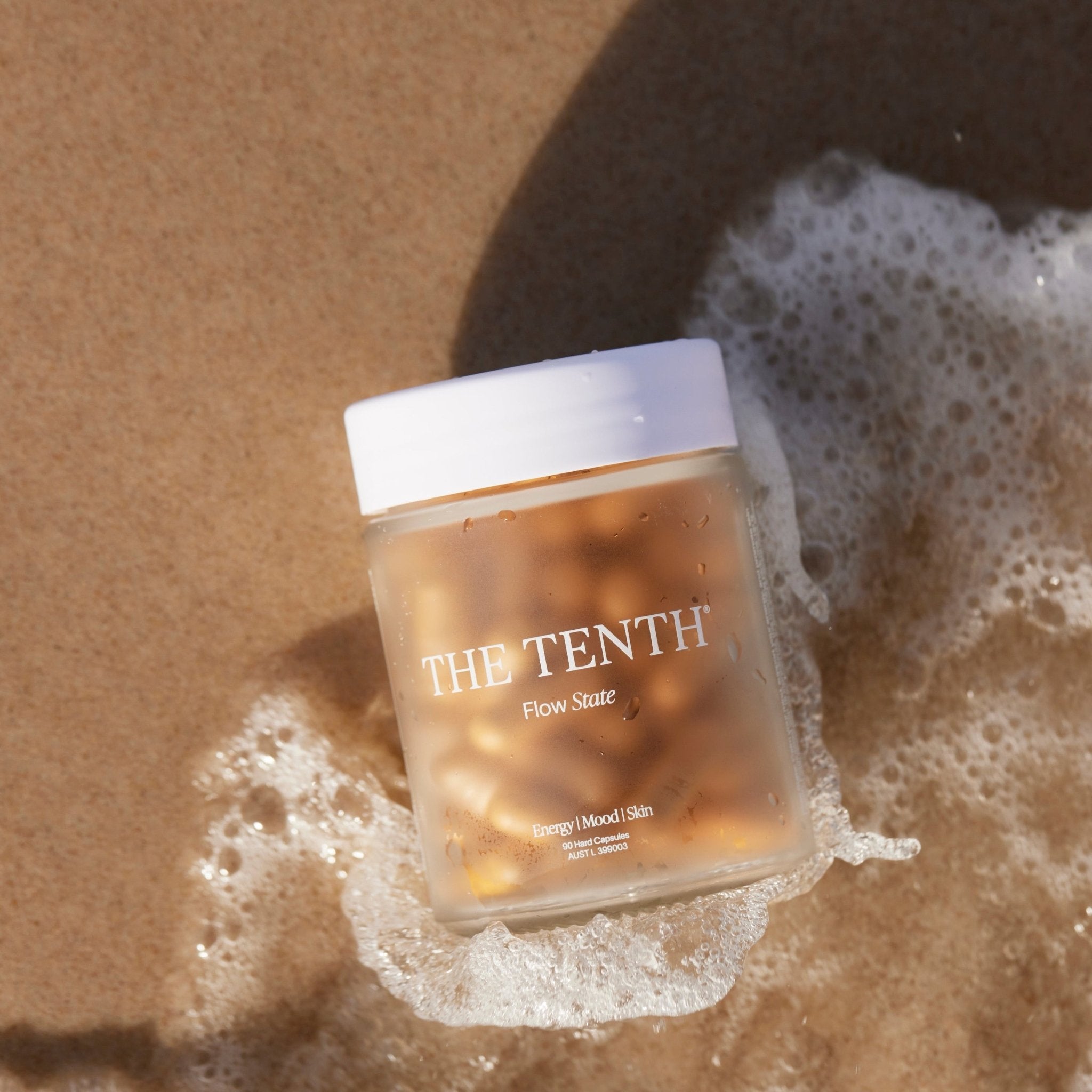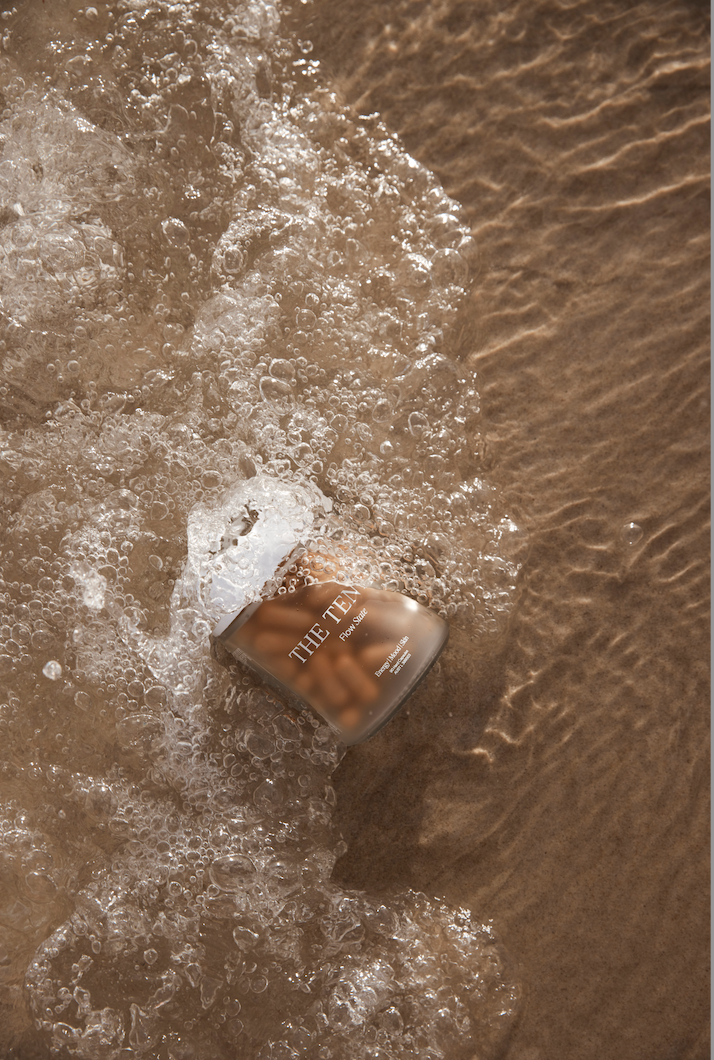You might think it's a strange thing for us to say, but we’re actually all about 'eat food first' approach. In an ideal world, our bodies would receive all the necessary nutrients from the food we eat. We'll always promote to eat a healthy balanced diet first and foremost. If you’ve ever wondered "don't we get enough nutrients from what we eat?" Well, we can and we absolutely should try to get nutrients from our food first. Unfortunately, due to various factors such as poor soil quality, food processing, and busy (if not hectic) lifestyles, it has become increasingly difficult to obtain all the essential vitamins, nutrients and minerals solely from our diets.
What would the world look like where we get enough nutrients from our diet?
Let's look at what it would take to get all nutrients from our diet, a world where we didn’t need supplements at all.
Imagine this: It would be easy and accessible to eat well-rounded nutrient-dense foods, all of the time.
This is harder than you'd think. Our over-worked soils are depleted of nutrients that so too are the fruits and veggies we eat. You’d probably need to spend a lot of energy and time ticking all the boxes for the nutrients you need, especially those that can be challenging to get through food alone.
Vitamin D is a great example, most Australians consume less than half of international recommendations for vitamin D (10 µg/day). Nine out of 10 Australians have low vitamin D intakes, Curtin study shows, published in the Journal of Human Nutrition and Dietetics. “It can be difficult to consume enough vitamin D as few foods are rich in vitamin D. Oily fish is the best food source of vitamin D, with two serves a week recommended. Other foods such as eggs and meat contain small amounts, but we don’t find vitamin D in fruits, vegetables or grain-based products, like bread or rice.” Associate Professor Black said in their study.
Magnesium is another example. Over a third of Australians are deficient in Magnesium, and over 50% of Americans. We require more magnesium when we are pregnant and breastfeeding, as well as when we are going through a stressful season, where we are stressed for a prolonged time. Studies have shown women on average miss out on one third of the required magnesium every day.
Folate deficiency (not getting enough folate) is one of the most common vitamin deficiencies in Australia according to Food Standards Australia New Zealand (FSANZ).
Iodine is another one. And this is just general population, when you take into account being under constant stress or being in postpartum, also known as postnatal depletion there is a host of other nutrients that come into play. Making eating enough of every needed nutrient becomes increasingly challenging.
This is where supplements come into play, providing a convenient way to bridge the nutritional gaps and support our overall well-being.
Imagine this too: We would all be the same. No difference in our genetics.
We don't know about you, but we think if we all were the same this world would be a pretty dull place. that's why we celebrate everyone just like they are. We are all beautiful, unique individuals —and this starts with our own unique DNA. That also means that for some of us have genetic variables that make it challenging to efficiently use certain nutrients. For example, up to one-third of adults have a genetic variation that makes it difficult for your body to to properly process folate and other B vitamins. Did you know that almost every cell in your body requires active folate to function properly.
Lastly Imagine this: Soil quality being perfect, always - guaranteed.
Many of the vegetables and foods we eat today may actually be less nutrient-dense than they were, when our grandparents grew up. Some even say that in many cases we are having “two mouthfuls of food for one mouthful of nutrition.”
It's been shown in multiple studies that our soil is being depleted of essential nutrients, in the developed world. Especially in Australia, because Australia has not undergone the same glacial or volcanic activity as other parts of the world, this has left most of our soil old and infertile. Not to mention modern agricultural practices, as a result our soil may be less nutrient-rich than it was decades ago. What can we do about it? A solution could be to buy organic and shop at local farmers market, who hopefully engage in more sustainable farming practices. Alternatively you could grow your own veggie garden of course.
It’s a lot to consider, right? The thing is that in order to avoid nutrient gaps, we would need to try to live up to these imaginative scenarios. Consider this, even if you are a frequent at your local market and think of yourself as having a healthy diet, you could have a genetic variation impacting your ability to utilise folate and other B vitamins in your food. These are all really good reasons why supplementing with a high quality vitamin supplement might help fill the gaps, to ensure our bodies receive the essential vitamins and minerals they need to function optimally especially when we are very busy and always on.
How do supplements work?
Supplements work by providing concentrated doses of specific nutrients that may be lacking in our diets. They come in various forms such as capsules, tablets, powders, or liquids, making it easy to incorporate them into our daily routines. By taking supplements, we can ensure that our bodies receive the essential vitamins, minerals, and other beneficial compounds they need to function optimally.
Choosing the right supplements
When it comes to selecting supplements, it's important to prioritise quality and safety. Look for reputable brands that adhere to strict manufacturing standards and third-party testing. A good guideline is to look for supplements that are registered with Australia's Therapeutic Goods Association (TGA). Those who are are listed with TGA, must display a AUST L number front of pack. If there is a supplement that doesn't have the AUST L number - means it can not be legally sold in Australia as a therapeutic good (meaning it can claim to have a therapeutic effect e.g. "improve your energy). Unfortunately there are so many thousands of supplements that are sold as 'food' yet claiming to have a therapeutic affect. You wouldn't think it's possible, but unfortunately it is. So, always look for a AUST L number to ensure it's been made in TGA approved facility, to ensure it's safe for consumption (when used correctly - always read the label and follow directions for use).
Additionally, we always recommend to consult with a healthcare professional or a registered dietitian to determine which supplements are best suited for your individual needs and goals.
But while we wish we could get all the needed nutrients we need through our food alone, the truth is that there are so many other factors that come into play—how stressed we are, whether we are postpartum or not, our genetic disposition etc.
This is why we created The Tenth Co Flow State to make it convenient to get essential nutrients that are challenging to get through our diet when we are depleted.
To summarise, we’ll always advocate for curiosity and some healthy skepticism around the things we're putting into our body—all in the name of building a curious mind and at the same time better nutrition habits. This should be true for your supplement, but it starts with what's on our plate. Even if we wish vitamin supplements didn't exist, we have glad that they do, as supplements can be essential for our overall well-being, especially when we are depleted —and that's why we never skip a day without taking our three-a-day; now what if we still tried to eat like they didn’t exist? We'll leave you with that food for thought.

